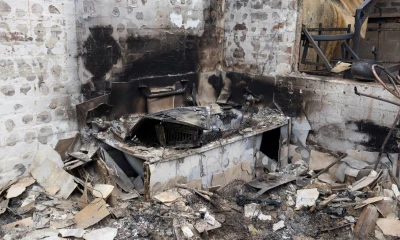Edited by Deepali Verma
The latest death toll jumped to at least 112 and it will continue to be so as responders are still grappling to control the massive fire in the coastal tourist region of Valparaiso in Chile’s central region during an intense summer heat wave.
Owing to this and as search teams are still destroying the neighbourhoods to fish out bodies, President Gabriel Boric has warned of “significant” surge in the number.
The fire incident has led to temperature soaring up to 40 degrees Celsius (104 degrees Fahrenheit) over the course of the weekend.
Rosana Avendano, who is a 63-year-old kitchen assistant, was away from home when the fire spread through Vina del Mar, the seaside city where she resides with her husband.
“It was terrible as I couldn’t manage to get to my house. The fire came here and we lost everything,” Avendano told AFP.
“My husband was resting when he began to feel the heat of the fire approaching and he ran away.”
She feared the worst for hours. However, she was eventually able to contact him.
The organisation responsible for managing the victims’ bodies on February 4, revealed that that particular afternoon it had “taken in 99 people where 32 of them were identified.”
Dead victims in the streets
Boric has declared a state of emergency, pledging the government support to help people stabilise after he flew over the affected area in a helicopter.
As per the national disaster service, SENAPRED, close to 26,000 hectares (or 64,000 acres) had been burned across the central and southern regions by February 4.
Employing 31 firefighting helicopters and airplanes, nearly 1,400 firefighters, 1,300 military personnel and volunteers are combating the flames. SENAPRED chief Alvaro Hormazabal said firefighters were dealing with 34 blazes as of the morning of February 4, with 43 others under control.
Vina del Mar and the hillsides surrounding it saw entire blocks of houses that were burned out overnight. The tragic sight included some of the dead who were seen lying on the road, covered by sheets.
The fires, that stretched over days, forced authorities to temporarily halt the road linking the Valparaiso region to the capital Santiago, about 1.5 hours away,owing to a huge mushroom cloud of smoke that impaired visibility. Images that circulated online from trapped motorists showed mountains in flames at the end of the famous “Route 68” which led to the Pacific coast.
As per the Interior Minister Carolina Toha, the weekend blazes have been “without a doubt” the deadliest fire event in Chile’s history.
The fires are a result of the summer heatwave and drought affecting the southern part of South America caused by the El Nino weather phenomenon. Scientists have previously warned as well that a warming planet has increased the risk of natural disasters such as intense heat and fires.
The rising temperatures have a looming threat that it will engulf more of the continent, as brigades in Argentina have been fighting a fire that has consumed close to 3,000 hectares in Los Alerces National Park, which is popular for its beauty and biodiversity, since January 25.

















